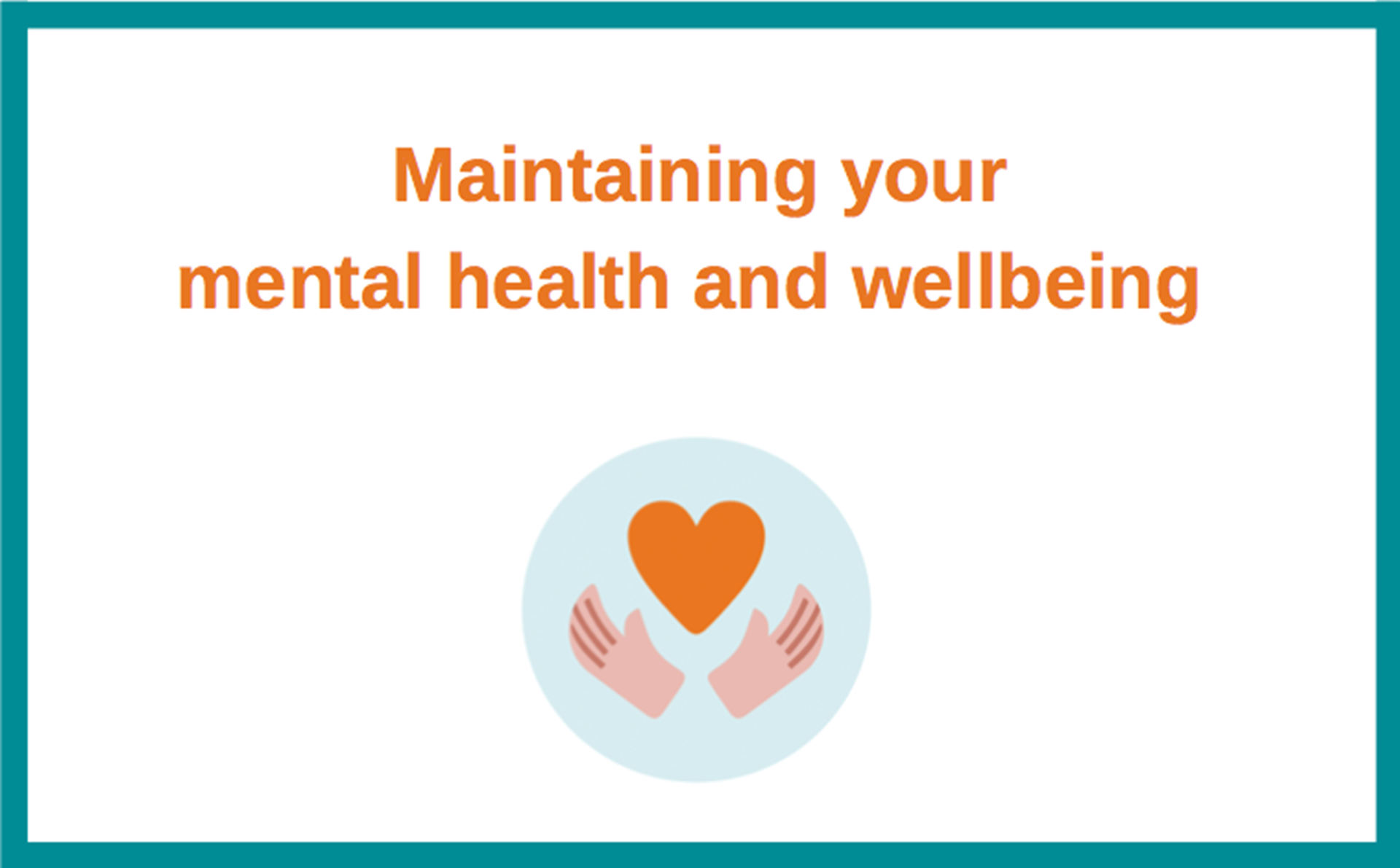Maintaining your mental health and wellbeing whilst isolated at home
Published: 02/04/2020
Your mental health and wellbeing should always be a priority but during these challenging times, where we are spending the majority, if not all of our time indoors, it’s more important than ever to look after yourself and look out for others.
In our latest blog, we have put together six key tips for maintaining mental health and wellbeing during the coronavirus pandemic:
1. Turn off the news
The stress of regular updates and breaking news can cause us to feel anxious and worried. This can affect our eating and sleeping routines, because it is all we can think about. It’s important to stay up-to-date with what’s happening but you don’t need to check every hour.

2. Find something else to fill your mind and stimulate your brain
Using the additional time you have at home to do other activities will not only help to take your mind off what is happening, it will also help the time to pass quicker. When you’re engaged in activities you enjoy, this encourages the brain to release those feel good endorphins which can ease anxiety. Did you used to draw? Paint? Are there any books you haven’t read for a while? Have you always wanted to learn a new skill? Now is the time to start! There are lots of free resources online too, including podcasts and e-books.
It’s also important to keep your brain stimulated, with activities such as Sudoku, puzzles and jigsaws.
3. Stay active, even at home
Exercise is strongly encouraged, as it also releases endorphins which can improve your mood and reduce anxiety. There are hundreds of workout videos on YouTube which will allow you to exercise in your own home or garden, including PE lessons from celebrity chef and trainer, Joe Wicks/The Body Coach, which are hugely popular and fun for all the family.
Whilst you may not have the freedom to move around outside, if you have a garden, make sure you’re getting plenty of fresh air. Better still, if you enjoy gardening, you’re not restricted from still tending to yours.
4. Connect with people online
We know the impact social interaction has on our mental health and wellbeing so think about ways you can continue to communicate with people that you would usually visit face-to-face. There are lots of free apps you can use, such as FaceTime, Zoom or Skype to communicate with multiple people during a single call. Why not host your own quiz for family and friends using one of the apps listed above?
Many local community groups have moved online so they can continue running during the pandemic. From choirs, to exercise classes and book clubs, there are a wealth of different activities that you can get involved in. A good place to find out what local clubs have moved online is the community groups on Facebook.
5. Keep a routine
Having a daily routine provides us with a sense of purpose and provides structure. If you’re now working from home or self-isolating, your new daily routine could look very different to your old one. Routines are particularly important for people who need to carry out daily tasks to support their health, for example, taking medication.
A change of routine may affect your fluid intake and also your diet, so remember to stay hydrated by drinking 6-8 glasses of fluid a day and eat healthy, balanced meals which include at least five portions of fruit and veg a day. If you are self-isolating or shielding, ask someone to drop off essential food items and leave them on your doorstep to avoid face-to-face contact.
6. Sleep well
Stress and anxiety have an impact on our sleep. By implementing some of the advice above, you can help to maintain a healthy sleep pattern for you and your body. Trying to relax more, connecting with friends and family in new ways and finding interests to occupy your mind, can all help to ease any worries and concerns you have and enable you to sleep well.
Now is the time where we can all play our part to help our communities. We understand that the prospect of staying indoors over the coming weeks is daunting but by following the Government’s measures, we are also providing a safer environment for our key workers to continue serving those who need support the most during this difficult time.
